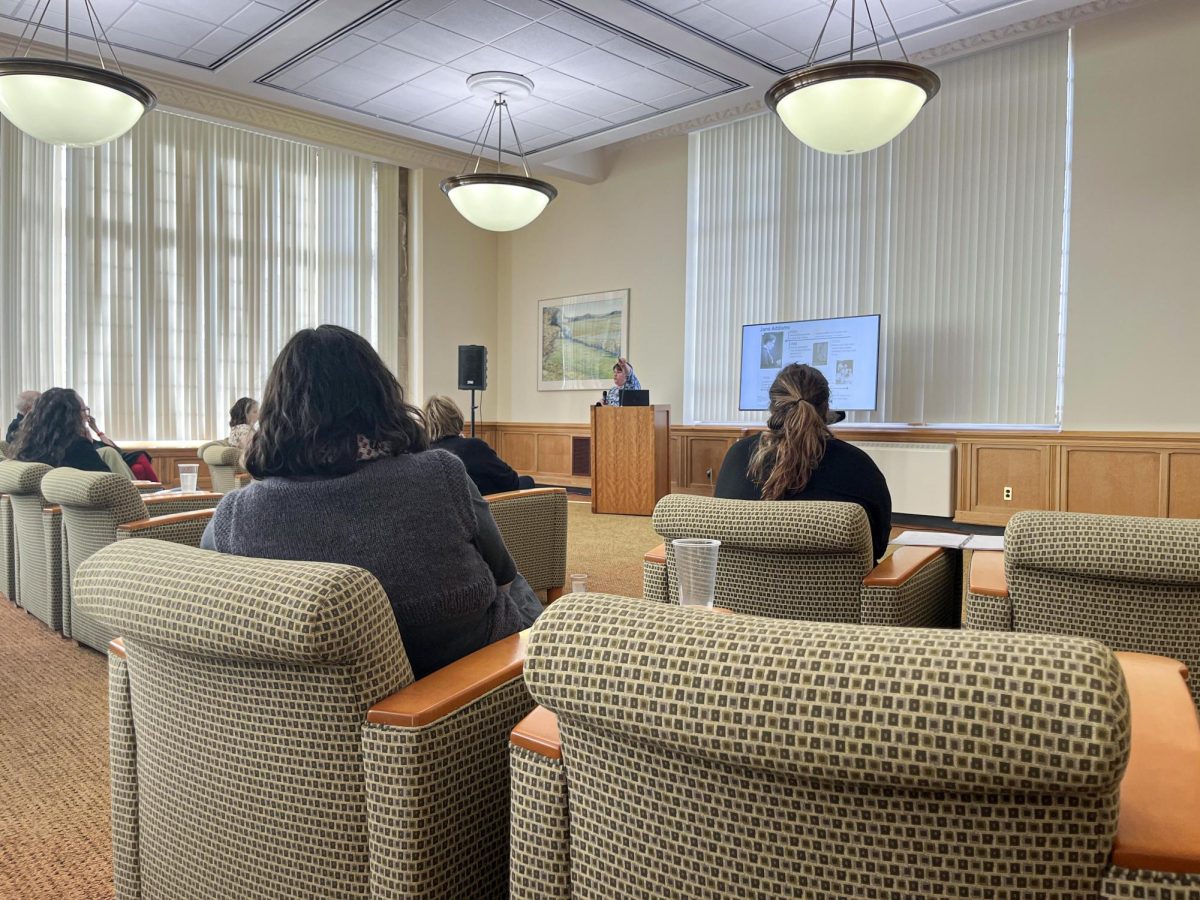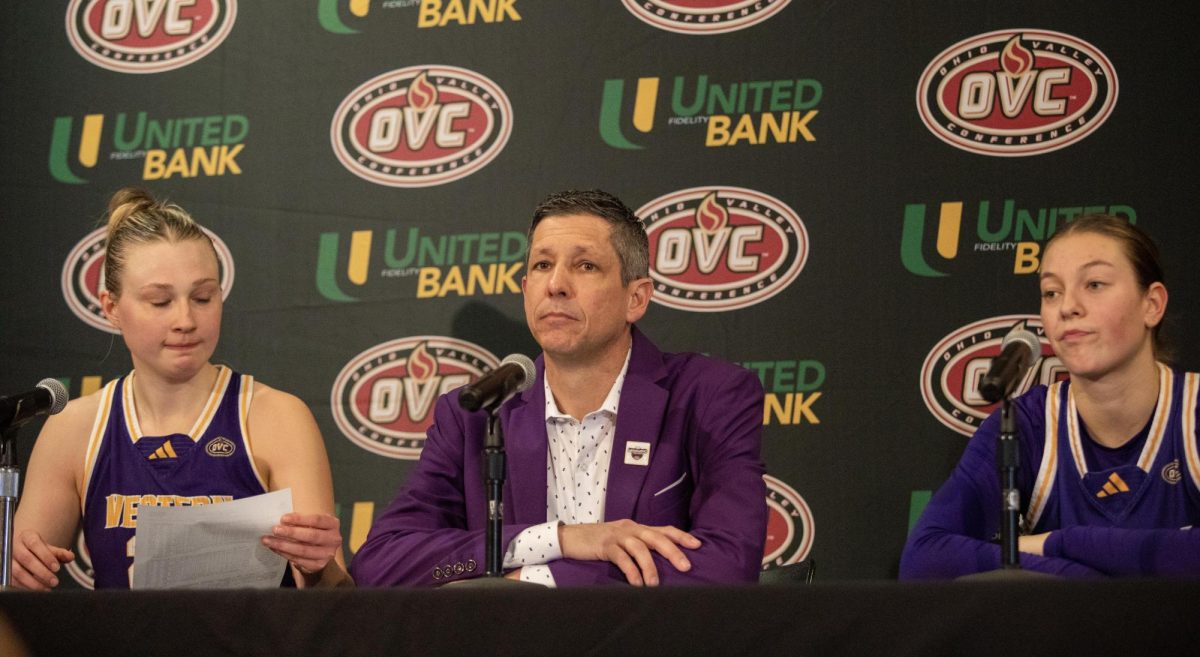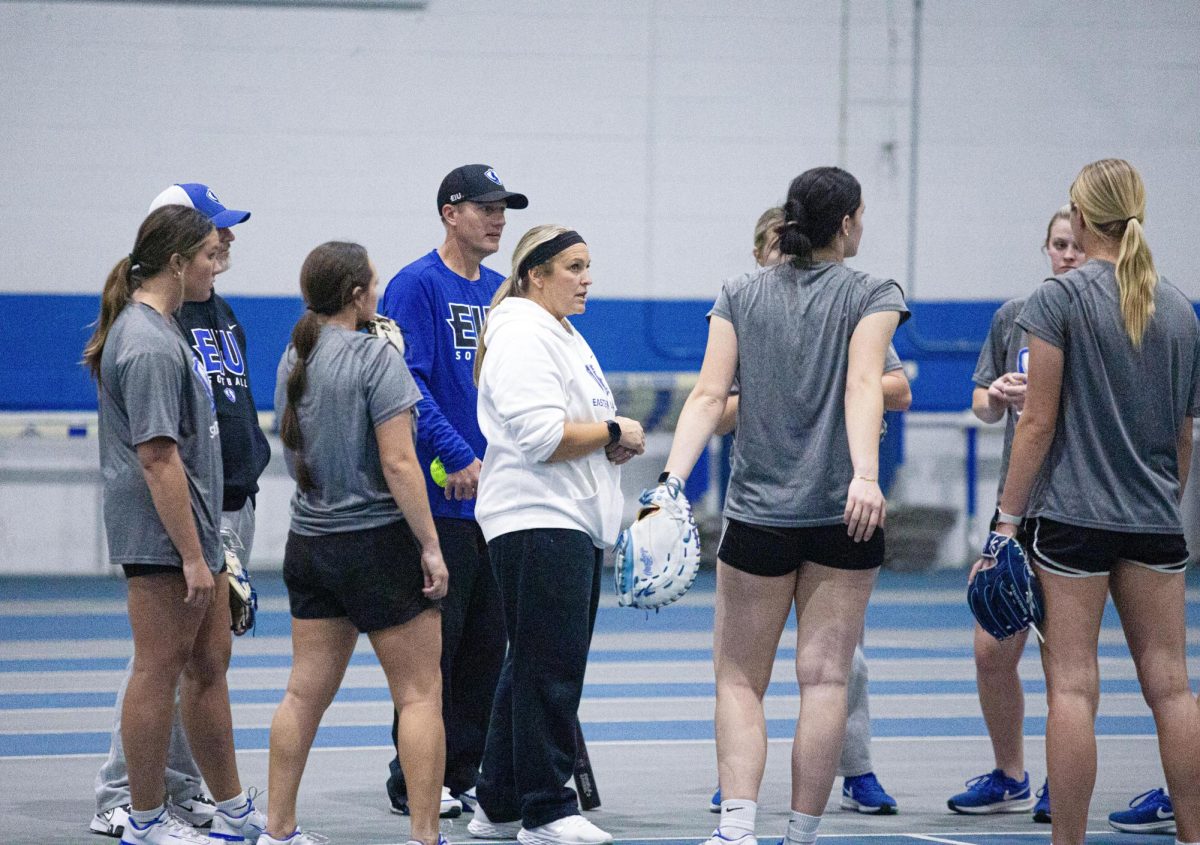In topics ranging from Kylie Jenner to cornrow braids, the African American Heritage Month committee discussed various topics of cultural appropriation.
Nicholas Wright, associate resident director, and Farrah Dean, a junior biological sciences major, coordinated the forum titled “They Don’t Appreciate, They Appropriate”.
The open discussion forum took place in Lumpkin Hall Auditorium Tuesday and consisted of five panelists: Corinthian Bethel, a senior family and consumer sciences major; T.M Linda Scholz, a communication studies professor; Julianne Adegoriolu, a junior kinesiology and sports studies major; Caitlyn East, advisor for National Pan-Hellenic Council and Dionte McWillis, a senior history major.
“This forum is to stimulate and challenge the way we think,” Wright said.
The forum opened with a YouTube video, which debunked seven myths about cultural appropriation.
A main point in the video was the fact that dominant groups take trends from unrepresented ethnic groups and marginalize them.
Dean said she believed the definition of appropriation is the adoption or use of elements of one culture by members of different culture.
“My definition of cultural appropriation is taking another culture’s fashion, artifacts, symbols, rituals, or language and exploiting it for personal gain without giving credit to the group it comes from,” Wright said.
When being asked about the differences between appropriation and appreciation, Adegoriolu spoke about understanding meanings of cultures, and copying cultures.
“Appreciation is when you represent that culture and its entire entity,” Adegoriolu said. “You understand the different aspects of fashion, languages, foods, and you can relate them to that cultures morals and values”.
Bethel said he believes when other cultures are borrowed, the culture is used in a stereotypical way.
“I have never seen appropriation where it was used to benefit someone,” Bethel said.
Scholz said she believed borrowing aspects of other cultures for convenience is a problem within itself.
“Oftentimes when people borrow from another culture to benefit them, it is usually the dominant culture borrowing from the non dominant culture,” Scholz said. “They appropriate it and commodify it for their own use”.
The forum then discussed the topic of Kylie Jenner and the things she does that can be seen as cultural appropriation.
Ashley Howard, a senior communication studies major, said that African-Americans do not own certain trends such as cornrow braids, but it is embedded into the history.
“When a Kardashian wears cornrows it is deemed as edgy or trendy, but when I walk out of the house like that I am deemed as ghetto,” Howard said.
Dean said she believed many dominant races are now going for the exact features that African-Americans were once judged about.
“I think that African-Americans have been judged and talked about to destroy their confidence and to enforce self-hate within the black communities,” Dean said. “As a child I was ridiculed for having very full lips, and now everyone is going to great lengths to get them.”
Adegoriolu said when people in power appropriate the act is taken on as a trend, and because they have that power they are not ridiculed as they should be.
Scholz said that appropriation is an issue between women as well. She said that appropriation also causes a divide between African-American women and white women.
“White women tend to take on these particular traits or characteristics they assume are okay, then she makes money for it on the backs of black women,” Scholz said.
Wright said that you could not appropriate races, only cultures. He said culture is not a trend.
“If you have no appreciation for the black culture, then you should not use it when it is convenient for you” said Dean.
Wright said he wanted students to take away many things from this forum. He said he wanted students to know culture is not a costume, to develop a respect for cultures other than their own, to not be afraid to have an open dialogue about topics that are centered around diversity and to know the real definition of appropriation.
The forum ended by watching a YouTube video by Amandla Stenberg. In this video she pointed out several examples of cultural appropriation and the many ways that it is disrespectful to the black community.
Wright said cultural appropriation is an issue because it promotes negative stereotypes of marginalized populations, and has the power to incorrectly rewrite history.
“What would America be like if we loved black people the way we love black culture,” Amanda Stenberg said in the video.
Torri Griffith can be reached at 581-2812 or tlgriffith@eiu.edu






![[Thumbnail Edition] Eastern Illinois University baseball's hitting coach and recruiting coordinator Mike Pugliese urges players on the team to increase their effort after a slow start to its pregame routine at the team's first intrasquad scrimmage of the season at O'Brien Field on Jan. 31, 2025.](https://www.dailyeasternnews.com/wp-content/uploads/2025/03/BB_02_O-1-e1741909628540-1200x702.jpg)
![[Thumbnail Edition] Senior tennis player Luisa Renovales Salazar hits the tennis ball with her racket at the Darling Courts at the Eastern Illinois University campus in Charleston, ILL.](https://www.dailyeasternnews.com/wp-content/uploads/2025/03/Tennis_01_O-1-e1741807434552-1200x670.jpg)


![[Thumbnail Edition] Senior right-handed pitcher Tyler Conklin pitching in the Eastern Illinois University baseball team's intrasquad scrimmage at O'Brien Field in Charleston, Illinois on Jan. 31.](https://www.dailyeasternnews.com/wp-content/uploads/2025/03/TC_01_O-e1741567955534-1200x669.jpg)






![[Thumbnail Edition] Senior, forward Macy McGlone finds an open teammate to pass the ball too during the game against the Tennessee State Tigers 69-49, in Groniger Arena on the Eastern Illinois University campus, Charleston Ill.](https://www.dailyeasternnews.com/wp-content/uploads/2025/03/WBB_02_O-1-e1741228987440-1200x692.jpg)


















![E[Thumbnail Edition] Eastern Illinois softball freshman utility player Abbi Hatton deciding to throw the softball to home plate in a fielding drill during softball practice at the field house in Groniger arena on Tuesday Feb. 11.](https://www.dailyeasternnews.com/wp-content/uploads/2025/03/SB_03_O-e1741208880750-1-e1741209739187-1200x815.jpg)
















![The Weeklings lead guitarist John Merjave [Left] and guitarist Bob Burger [Right] perform "I Am the Walrus" at The Weeklings Beatles Bash concert in the Dvorak Concert Hall on Saturday.](https://www.dailyeasternnews.com/wp-content/uploads/2025/03/WL_01_O-1200x900.jpg)
![The team listens as its captain Patience Cox [Number 25] lectures to them about what's appropriate to talk about through practice during "The Wolves" on Thursday, March 6, in the Black Box Theatre in the Doudna Fine Arts Center in Charleston, Ill.](https://www.dailyeasternnews.com/wp-content/uploads/2025/03/WolvesPre-12-1200x800.jpg)
















